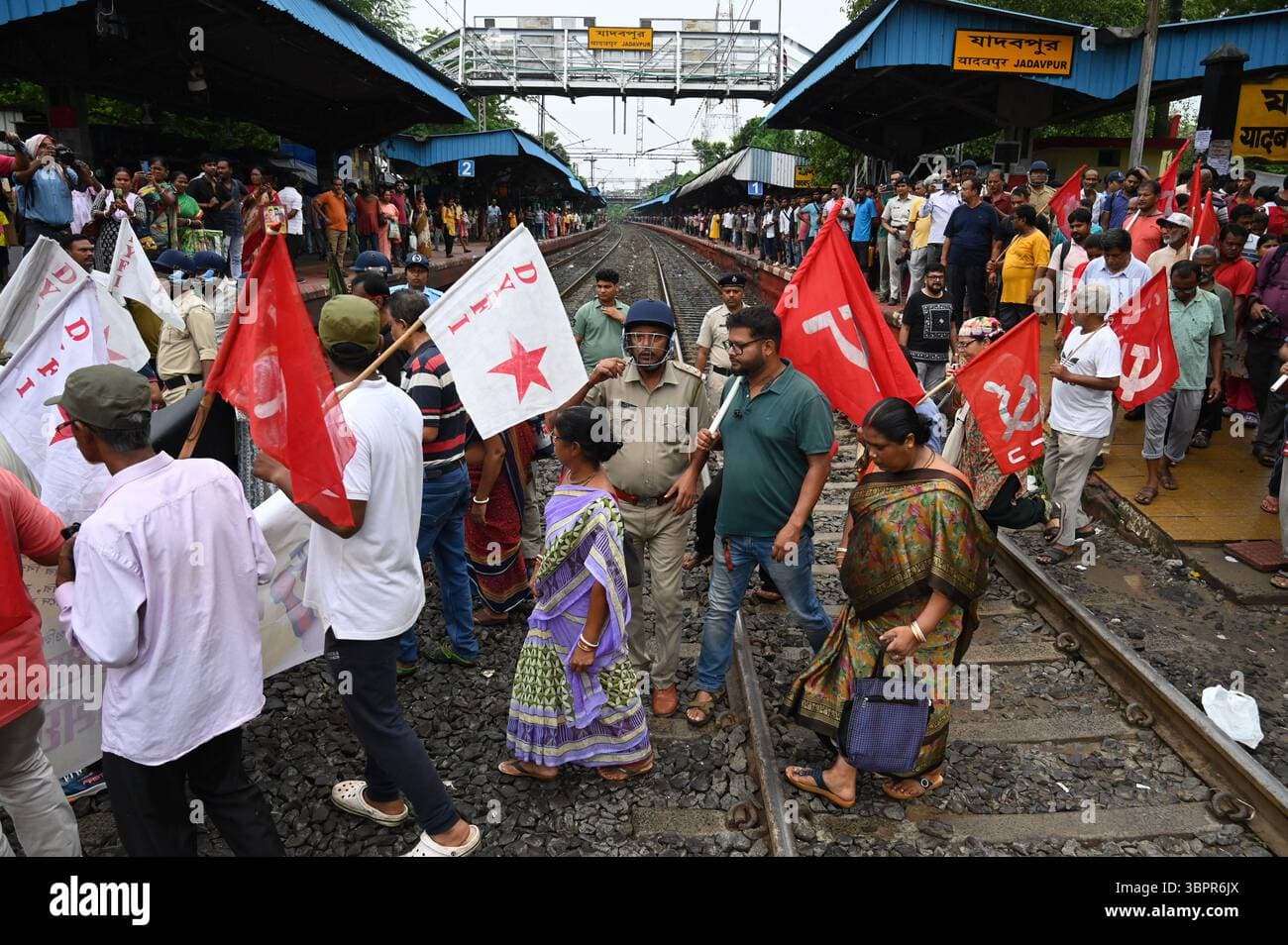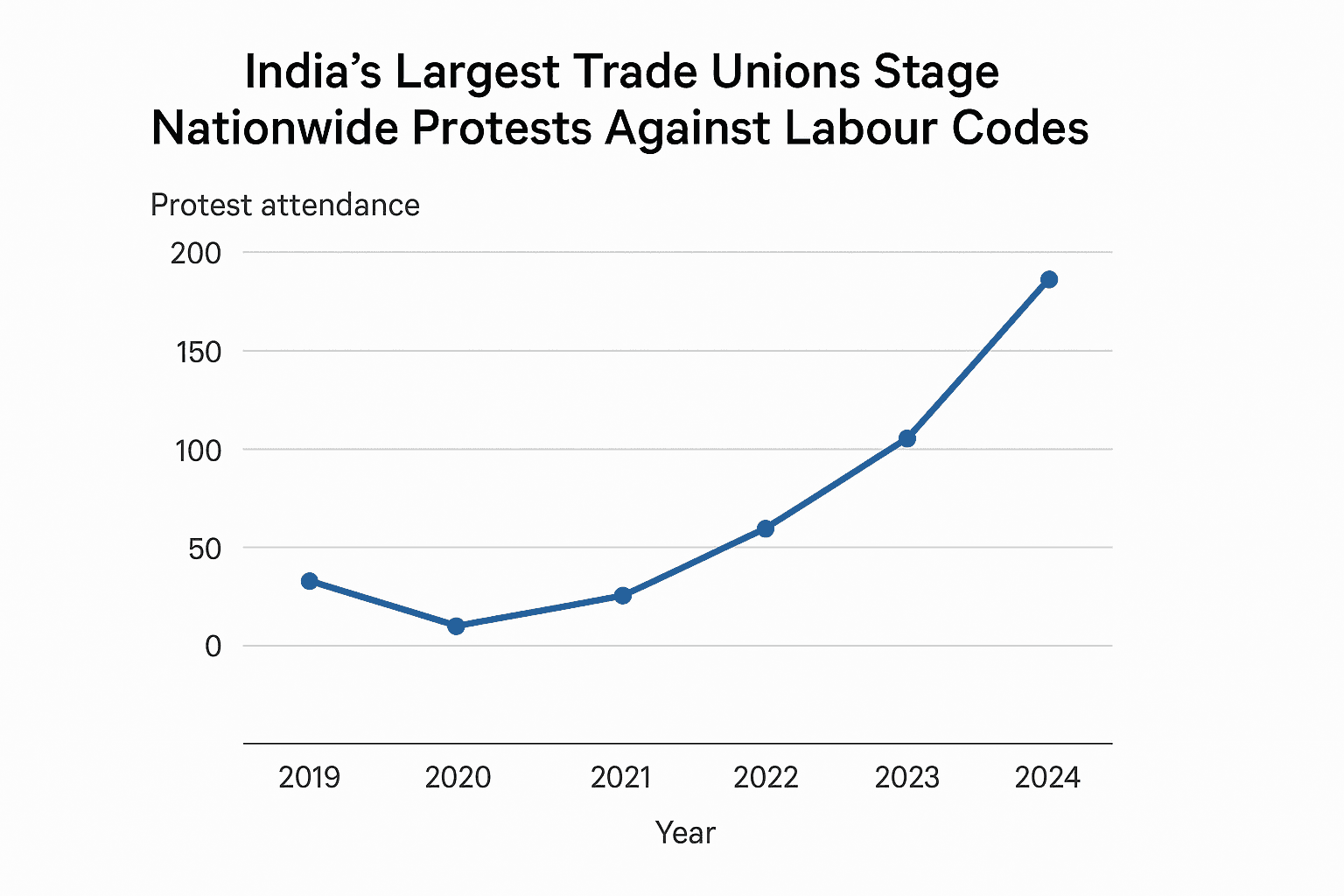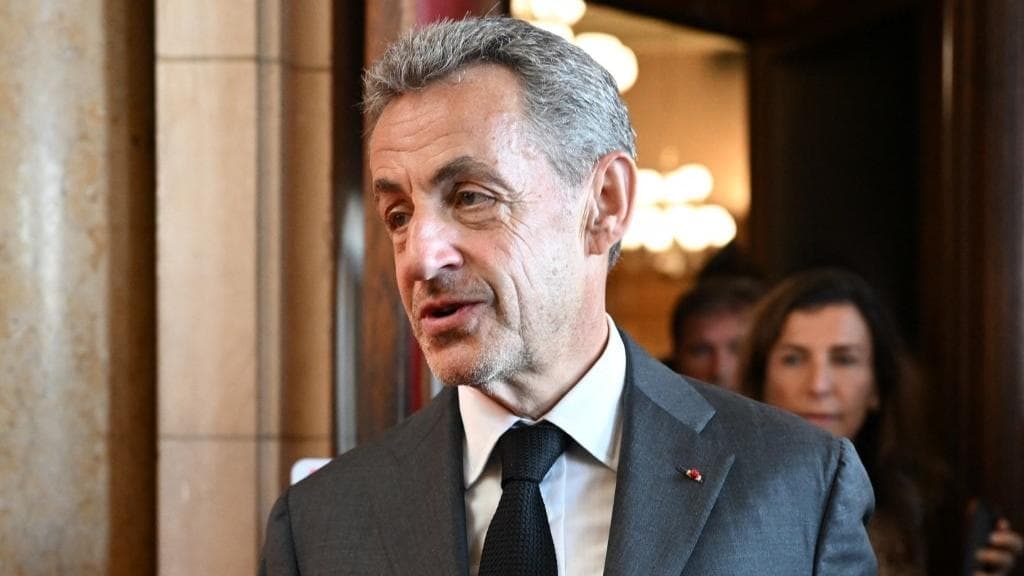India’s Largest Trade Unions Stage Nationwide Protests Against Labour Codes
A coalition of ten major trade unions is holding mass rallies and strikes across India to oppose new labour codes, calling the reforms a "deceptive fraud" against workers. The demonstrations in New Delhi and other urban centres underscore a growing clash between government efforts to reshape the labour market and organized labour ahead of key political contests, with implications for investment, worker protections and social stability.

A coalition of ten of India’s biggest trade unions is carrying out nationwide protests on November 26, 2025 against the government’s rollout of new labour codes, staging rallies and strikes in New Delhi and other major cities and calling the changes a "deceptive fraud" against workers. The demonstrations, captured in photographs and reporting by news agencies, have drawn large gatherings in urban centres and mark a significant display of organised labour’s capacity to mobilise against central government policy.
Union leaders are accusing the authorities of implementing reforms that they say will weaken long standing worker protections, undermine collective bargaining and facilitate broader casualization of labour. The coalition’s action brings together unions from different political and industrial backgrounds, signalling an unusual level of coordination on an issue that affects millions of wage earners across formal and informal sectors.
The government has defended the labour codes as modernising measures designed to improve employment flexibility and attract greater investment. Officials argue the changes will simplify a complex web of regulation and make it easier for businesses to hire and expand, a central plank of economic policy aimed at boosting manufacturing and services. The parliamentary process that produced the codes has been portrayed by the government as part of a broader push to align India’s labour market with global standards and to encourage job creation.

The confrontation unfolds against a charged political backdrop. With state elections and a future national contest on the horizon, the protests could alter political calculations by turning labour concerns into a mobilising issue for opposition parties and street level politics. Labour unions have historically been influential in some regional power centres, and a nationwide mobilisation of this scale can complicate the government’s narrative about reform and progress.
Beyond domestic politics, the dispute carries implications for foreign investors and global supply chains that watch India’s policy environment closely. Investors seeking predictability may interpret intense labour mobilisation as a signal of contested reform and social risk. At the same time, proponents of the codes say greater regulatory clarity and flexibility are essential to attract long term capital and integrate India more deeply into regional manufacturing networks.

Legal and institutional questions are also likely to follow. The manner in which the codes were rolled out and the balance between flexibility and protection for workers are set to become matters of public debate, potential litigation and parliamentary scrutiny. The present protests demonstrate the unions’ intent to keep pressure on multiple fronts, leveraging public rallies to shape the political and legal environment around the reforms.
For now the demonstrations are a vivid reminder that changes to labour law in a country of India’s size touch on livelihoods, regional politics and international economic strategy. How the government responds, and whether unions sustain their campaign, will determine whether the labour codes become a catalyst for a wider dispute or a contested chapter in India’s ongoing economic transformation.

